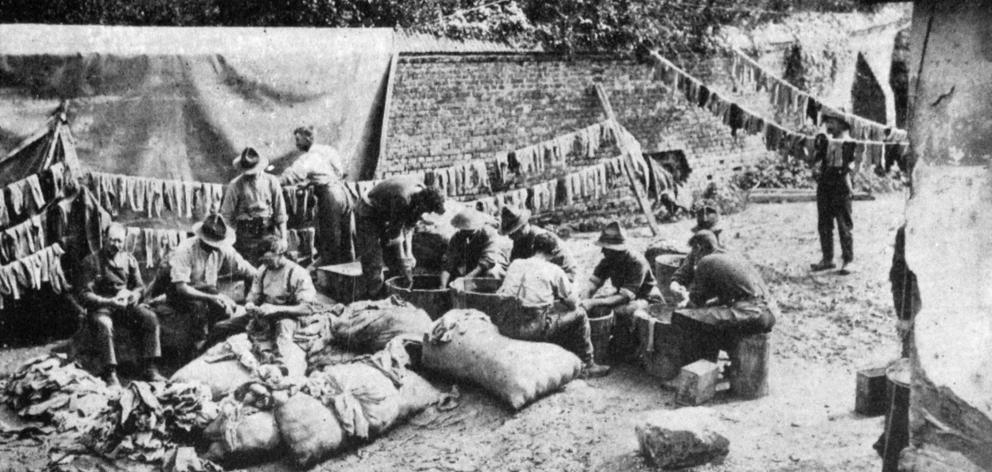
Lieutenant-colonel Pennycook, who returned to France only a few weeks previously, was in his forty-sixth year, and was born in Scotland. Shortly after arriving at Balclutha in 1887 he was apprenticed to the printing trade in the Clutha Leader office. He subsequently went to Christchurch for a few years, and worked at his calling in that city, eventually returning to Balclutha. On the formation of the Clutha Mounted Rifles he became an enthusiastic volunteer, and won a commission in the corps, and after a few years was appointed captain. He joined the Tenth New Zealand Contingent for South Africa, and left as commanding officer with the rank of major. On his return to New Zealand he was posted to the unattached list of the New Zealand Forces. In company with Mr D. T. Fleming, who had been on the literary staff of the paper since boyhood, he leased the Clutha Leader from the late Mr J. S. Fleming, the former acting as editor. In 1912 he acquired the goodwill of his partner, and, purchasing the paper, became sole proprietor, and attended to the managing and editing till three years ago, when he dropped the pen for the sword. He went into camp in March, 1915. He was given the rank of captain, and in August, 1915, sailed with the Sixth Reinforcements as officer commanding the Otago Company. He served at Gallipoli, and took part in he evacuation. On his return to Egypt he was posted to the rank of major, and was given command of the Otago Company in the newly-formed Pioneer Battalion. In April, 1916, he went to France and was mentioned in despatches. A stray bullet struck him in the left wrist, permanently disabling his left hand. He was appointed assistant provost-marshal for the New Zealand Forces in London, later promoted to lieutenant-colonel, and given command of a battalion in France. With his passing another hero is added to the roll of honour, and the memory of a brave, truthful, and charitable man remains. Lieutenant-colonel Pennycook had a family of six children. The eldest, Robert Roy, is on home service with the Canadian Forces, and the second son, Jack, is at Lincoln Agricultural College. Miss Pennycook and the three youngest children live in Balclutha.
Proud record
The family of Mr and Mrs Dundas Samuel have a war record of which the parents may well be proud, even though deep sorrow has been brought to the home as the result of the conflict. Of the family of six boys two have made the supreme sacrifice, one has been posted as missing, one has been wounded, and one was invalided home from Gallipoli. The youngest son is still at school.
Palms for hats and mats
The Hon. Dr Pomare (Minister in Charge of the Cook Islands) has secured a large number of young plants of the true Panama palm. These are being planted on the various islands of the Cook group. The intention is to establish the Panama hat-making and mat-making industry. — ODT, 10.9.1918.
• COPIES OF PICTURE AVAILABLE FROM ODT FRONT OFFICE, LOWER STUART ST, OR WWW.OTAGOIMAGES.CO.NZ












